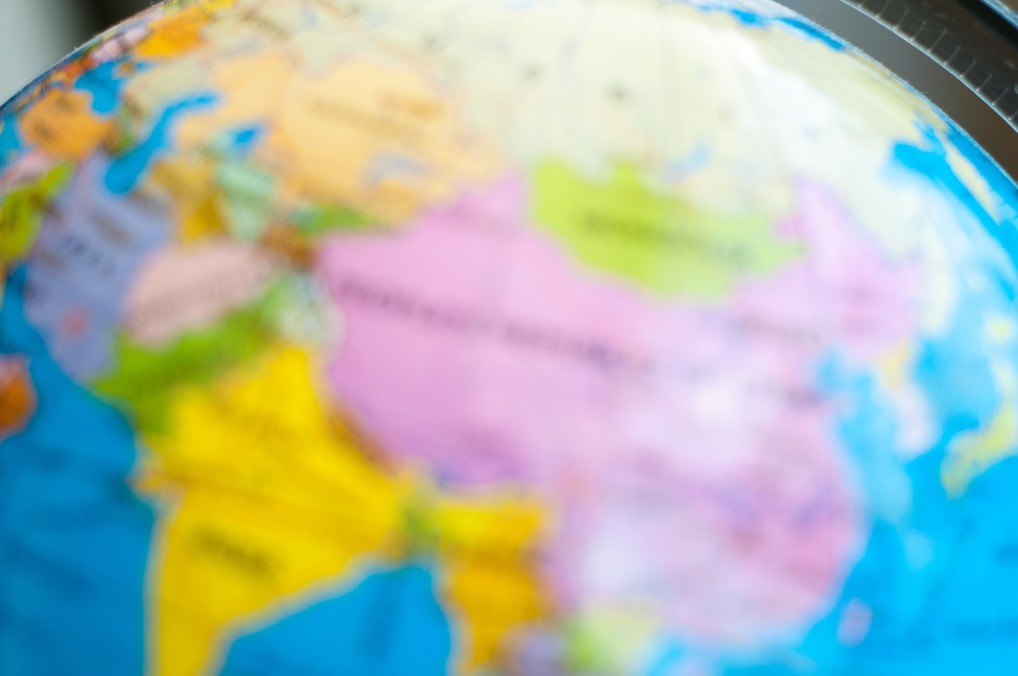Joe and Brian had an idea. It was a crazy idea, in fact. Sell 1000 boxes of cereal at $40 a pop. Not only were they planning to hawk something at over ten times its retail price, but this was 2008, just as America was sinking into one of the worst recessions in recent memory.
But they weren’t selling just any cereal. In the middle of election season, Joe and Brian had repackaged boxes of generic, dollar store cereal as “Obama O’s” and “Cap’N McCain’s.” They’d even added witty tag lines: “Hope in every bowl” and a “Maverick in every bite.” With the Democratic National Convention just around the corner, they thought they had an actual shot at capturing a bit of election fever and just maybe making a few bucks in the process.
It wasn’t as if Joe and Brian were busy with work. They’d recently started a company along with their friend, Nathan, but customers and investors had yet to catch on. Revenue by this point was about $200 a week and the founders could count their customers by hand. With too much free time and a lot of unspent creativity, they got to work hot-gluing box covers and setting up an online storefront. Joe, Brian, Nathan, and a few buddies were now cereal entrepreneurs.
To get election junkies (and presumably cereal lovers) to pony up $40 a box, the team needed to make news. So they sent the first 100 boxes they made to 100 reporters, following up with an email to each. They figured there was no way news-hungry journalists would pass up on these witty breakfast gags.
They were right. Within a week, the team was on “Good Morning America.” CNN’s top interview was on these guys and their cereal. Katy Perry even uploaded a video with her Obama O’s. Within days they were selling a $40 box of cereal every three minutes. Obama O’s proved to be an especially hot seller in what should have been a hint of which way the election was turning. By the time of both parties’ conventions, Nathan and his team had sold $30,000 worth of cereal.
If you’d asked Brian and Joe then whether the cereal gag was worth it, their answer undoubtedly would’ve been “yes.” Looking at the actual numbers though—well, you had to wonder. They were left with $10,000 after paying out royalties, which on an hourly basis didn’t pay them enough to buy their own box of Obama O’s.
After the cereal craze died down, there was still the harsh reality that Brian, Joe, and Nathan’s business wasn’t doing so well. The team had gone a year without income and meanwhile had maxed out their credit cards in a bid to stay afloat. There were still a number of problems saddling the company’s basic product that hadn’t gone away. Rather than being a funny side-project, the cereal venture was looking more like a costly distraction.
By December 2008, things were getting grim. Late one night, in a fit of hunger, Brian reached over and ripped open a leftover box of Cap’N McCain’s and started devouring it, eating fistfuls of Maverick-y breakfast. No milk, no bowl. As Nathan would say later, it was “almost like a pure animal instinct, sort of survival mode.” All the guys could do was laugh.
That was pretty much the point when they decided to take a final stab at making their company work. One of the team’s mentors had suggested meeting his friend Paul, a wealthy investor who ran an accelerator program for startups. They were told that they would have five minutes to make their case for why their company was worth a look. If he liked what he saw, he’d hand them seed capital and put them through his version of business boot camp. On a lark, they took the offer and drove out to Silicon Valley a few days later to meet Paul. And that’s when things ran off the rails.
Just two minutes into the presentation, Paul interjected. “I can’t believe anyone’s doing this,” he said. “That’s crazy; I wouldn’t do that.” And for the next three minutes, he tried to convince Joe, Brian, and Nathan to change their business into something else—really, anything else. The guys couldn’t believe it. Paul kept talking right up until their time ran out. And with that, the founders were shown the door.
On the way out, Joe reached into his bag and grabbed one of their last boxes of Obama O’s and handed it to Paul. Why did he do that? Who knows, really. He just had a feeling, an instinct to do something memorable. Nathan in fact had told Joe prior to their meeting, “Don’t bring the cereal. That’s not what we’re here to do. We’re here to pitch him on our business.” Yet there really hadn’t been a pitch, so what did they have to lose?
Paul’s reaction was initially one of confusion. “I don’t understand,” he said, “you bought this for me?” Joe replied, “No, we made this.” That got Paul’s attention. Tell me more, he said, pointing the founders back inside the room. They started telling Paul about their crazy idea, the dollar stores, hot glue guns, and CNN hits. This time he just listened and, at the end of it, sat back in amazement. All he could say was this: “If you guys can figure out a way to sell $30,000 worth of cereal and figure out how to make that, then I’m sure you’ll figure out a business model for what you are doing.” And with that, they were in.
[pq]Is success a matter of luck or skill? The answer, I believe, is both.[/pq]
In the span of Paul’s 13-week program, the company’s revenue was up by 2,150 percent. Sure, it wasn’t starting from much, but it got Brian and the team excited to think their business could actually work. They began to run their company differently, identify truly profitable ventures, and engage with customers in new ways. Revenue continued to double and then double again, until by the end of 2010 the company had gone global. More to the point, they were becoming known for more than just cereal. Brian, Joe, and Nathan’s company had fashioned a well-known brand that was gaining trust with thousands of customers.
Today, their company is the largest in the industry, besting competitors that have been around longer than most have us been alive. And to this day, the company’s founders credit that box of cereal with changing their fortunes. If Joe hadn’t handed taken the chance with Paul, let alone run the crazy stunt in the first place, he and his co-founders believe their company wouldn’t be where it is today.
Their company, in case you wondered, is AirBnB. Its website hosts over 800,000 listings for properties to rent out to over 17 million guests in over 34,000 cities across 190 countries. AirBnB is currently valued at around $10 billion thanks to investments from prominent venture capital funds and celebrities. And in a sign of the company’s disruptive potential, AirBnB is expected to put a dent of about 10 percent in the traditional hotel industry’s revenues by 2016.
Paul, by the way, is Paul Graham, the co-founder of Y Combinator. His Silicon Valley start-up machine is often regarded as the best tech incubator around, graduating such high-profile companies as DropBox, reddit, and Disqus. The total market cap of all of Y Combinator’s firms now sits at around $30 billion.
Why tell this story? In order to answer an age-old question: Is success a matter of luck or skill? And the answer, I believe, is both. It takes skill to identify fortuitous moments, particularly in the midst of failure.
The key difference between skill and luck is that one is based on hard work and the other is random. One is more internal to us, the other more external. If you see success as a matter of hard work, then you’re likely to place a greater weight on your individual agency in the world. Effort and success are inextricably intwined, as are laziness and failure. You’re the master of your fate, the captain of your ship and are thus due the just fruits of that control. Success and failure are yours to own.
Yet if success is a matter of luck, then it’s more a matter of being in the right place at the right time. As long as you’re taking risks, some degree of success and failure are assured. Nothing in life is ever fully under your control. Where you end up in life is often a matter of the cards you’ve been dealt.
What the story of AirBnB shows is that there are moments of serendipity occurring all the time. Most of us just happen to stumble into it and call it luck. But others, through skill and hard work, are better at identifying that luck and turning it into opportunity.
Brian Chesky, Joe Gebbia, and Nathan Blecharczyk—the co-founders of AirBnB—are each worth north of a billion dollars today because one of them, Joe, recognized a moment of sheer luck and took it. The others were smart to not stop him, even with the attendant risks. They had already courted failure for years anyway. They saw little to lose and everything to gain. And they were proved right. Three guys and a box of cereal ended up disrupting one industry from the inside out.
Thanks go to Russ Roberts’ EconTalk for highlighting this story in a recent podcast.



